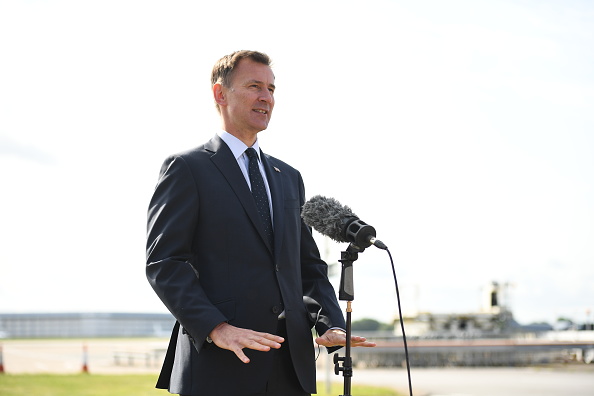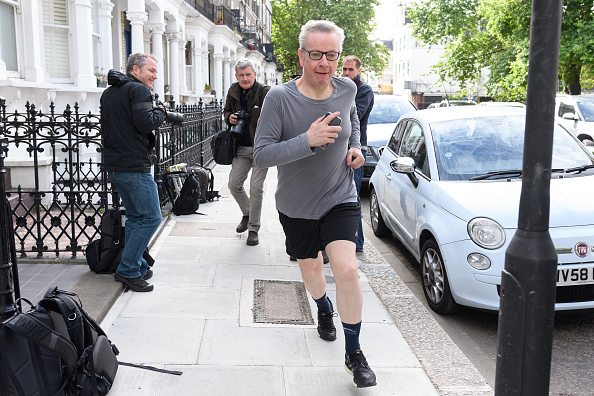WHO IS LEFT IN THE RACE
Unsurprisingly, one of Brexit’s vanguards, Boris Johnson, has taken the lead in the first round, having secured 114 votes. Johnson first entered parliament in 2001, briefly exited the legislative body from 2008 to 2015 as he served as London mayor during that time, and then made a return in 2016 as MP for Uxbridge and South Ruislip. In 2016, he campaigned in favor of exiting out of the EU and marketed himself as a staunch Brexiter, he served in Theresa May’s cabinet as Secretary of State but resigned in opposition to her approach to Brexit. From the start of the leadership race, Johnson was favored to become the new Prime Minister and his massive win in the first race conveys just that. Unlike May, Johnson has displayed robustness towards the EU, as he has stated that the country must be out of the union on October 31 and that any delay would be a defeat. However, he has ruled out that he is pursuing a “no-deal”, but said that the country must be prepared for such a scenario. He has also said that he would not pay the proposed 39 billion pound divorce bill to the EU.
Jeremy Hunt, who succeeded Johnson as Secretary of State, as also made it to the next round having gained 43 votes. He is considered to be a much more levelheaded alternative to Johnson. As Health Secretary he managed to solve a contract dispute among NHS doctors, leading some to believe that he would be able to navigate the negotiation process with the EU.
Michael Gove, current Environment Secretary, has also tossed his hat into the race and has come in third place in the first round with 37 votes to his name. Gove has been an MP since 2005 and has served in many ministerial positions such as Secretary of State for Justice and Sectary of State for Education. Some of Gove’s actions have made him unfavorable among Brexiters, for instance back during the 2016 Tory leadership race he initially supported his friend Boris Johnson. However, he quickly withdrew his support to enter the race himself; moreover, he supported May’s Brexit deal.
Dominic Raab is another staunch Brexiter who is among the 7 contenders who made it through the first round with 27 votes. He has served as Theresa May’s Brexit Secretary but resigned in opposition to her deal. Raab has said that he intends on getting the UK out by October 31 and has suggested that he could suspend parliament if it considers delaying the withdrawal.
Current Home Secretary Sajid Javid has also made it through to the second round with 23 votes, he first entered parliament in 2010 and in the span of nine years he managed to climb up the ladder of Tory hierarchy. Javid is a champion of free-market economics and during his time as Home Secretary, he has shown himself to be robust towards ships carrying migrants coming into the UK. He did, however, support remaining within the EU during the 2016 referendum, but has allegedly switched allegiances and now supports exiting the bloc. He doesn’t believe in getting out without a deal and seeks to negotiate a new deal with the EU.
One of the lesser-known candidates is Matt Hancock, current Health Secretary who gained 20 votes in the first round of voting. Thus far, he has been rather vague on how we would approach the Brexit negotiation process as he said that he would negotiate a time limit on the Irish backdrop and indicated that Theresa May’s deal should not be entirely ripped up. He also criticized those who would not address parliament’s concerns by favoring a no deal scenario, it should be noted that unlike other candidates he has said that the Tories should look beyond Brexit and should pursue ways to regain votes from those who went to the Lib-Dems and Labor.
With only 19 votes, current International Development Secretary Rory Stewart managed to edge it to the next round. Like Javid, he is a former remain supporter but has is now in favor of honoring the referendum result. He has rejected notions of leaving without a deal and has called for compromise since he believes Britain cannot realistically leave without a deal.

BREXIT OVERSHADOWS OTHER POLICIES
What’s significant about this leadership race is the fact that Brexit has overshadowed all other policies, thus far the candidates have only conveyed how they will approach the EU and whether or not they favor a leaving without a deal. It should be noted that Michael Gove has stated that he would get rid of VAT (value added tax) and would replace it with a “flexible, lower tax regime”, which is peculiar since he voted for increasing the rate of VAT 13 times between 2010 and 2015. Gove has also said that he would establish a cybercrime task force.
While the candidates have yet to talk much about their non-Brexit policies, some of their voting records might give a clue as to what their policies might be. All seven remaining candidates have generally voted for anti-EU policies, for instance, they have all consistently voted against further EU integration and have also voted against the right of EU nationals already living in the UK to remain in Britain. Six out of the seven candidates have generally favored policies that benefit the wealthier parts of society as they have voted for reducing housing benefits for tenants who have houses with “too many” bedrooms and have voted against increasing taxes on those who earn more than 150,000 pounds a year. While there isn’t enough information on Johnson’s voting record on such motions, he has promised a tax cut on those earning 50,000 pounds or more a year.
The leading candidates also seem to be hawkish, as they generally voted for use of UK military forces in combat operations overseas. Hancock, Stewart, and Javid have all voted against investigations into the Iraq war, while Hunt, Johnson (who has voted in favor of the Iraq war in the first place) and Gove have all voted in favor of such investigations. Raab has never voted on such a motion. Nevertheless, all the leading candidates have voted for replacing Trident (the UK’s nuclear program) with a new weapons system.
DIGGING INTO THEIR PASTS
British tabloid press has a habit of circumventing important issues and calibrating public attention toward trivial news stories. This leadership race is not any different, as British tabloids recently acquired reports indicating that Micheal Gove had taken cocaine while he was working as a journalist twenty years ago. The news story garnered so much attention and the Environment Secretary was forced to apologize for his past activities and said that he regrets his mistakes. Some have used to this incident to highlight his hypocrisy as back in 1999 he wrote a column in The Times criticizing members of the middle class for advocating for drug legalization back. The controversy encouraged Jeremy Hunt to somewhat come clean about his own past drugs use, as he said that he might have tried cannabis in during his youth: “I think I had a cannabis lassi when I went backpacking through India.” He told The Times. Rory Stewart then admitted that he smoked opium 15 years ago when he was at a wedding in Iran, and a source close to Matt Hancock recently told the Telegraph that he occasionally tried cannabis when he was a university student, but has not taken any illegal substances since then. Dominic Raab also admitted that he occasionally engaged in cannabis while at university, while Sajid Javid claims that he has never taken any illegal drugs in his life and took this opportunity to use the moral high ground telling Sky News: "Anyone that takes class A drugs needs to think about that supply chain that comes, let's say, from Colombia to Chelsea, and the number of lives that are destroyed along the way." The leading candidate has stated many times during the 2000s that he may have taken cocaine during his youth, however in typical BoJo fashion, he would always make jokes about the incident to make it seem more innocent. "To say that I have taken cocaine is simply untrue." The leading candidate has stated, as he recounts that once during his university years he was offered a white powder substance, which he sniffed up and sneezed out instantly. He claims that he wasn’t sure what the powder was and might have actually been “icing sugar”. While Johnson isn’t a stranger to controversy, he managed to avoid this debacle altogether.

PARLIAMENT REJECTS LABOR LED PLAN TO PREVENT NO DEAL
The Labor Party recently led a cross-party motion to parliament, which would have given no-deal opponents the chance to stop the UK from leaving the bloc without a deal on October 31. The cross-party motion was backed by SNP Westminster, the Liberal Democrats, Change UK, and Plaid Cymru Westminster. Despite this cross-party backing, the motion lost by a slim majority as 309 MPs voted against it, while 298 voted for it, with eight Labor MPs voting against their own party’s proposal. As it stands, it seems like the staunch pro-Brexit wing of British politics will have much greater control of the negotiation process, but as always it is difficult to predict where the country will go from here.






